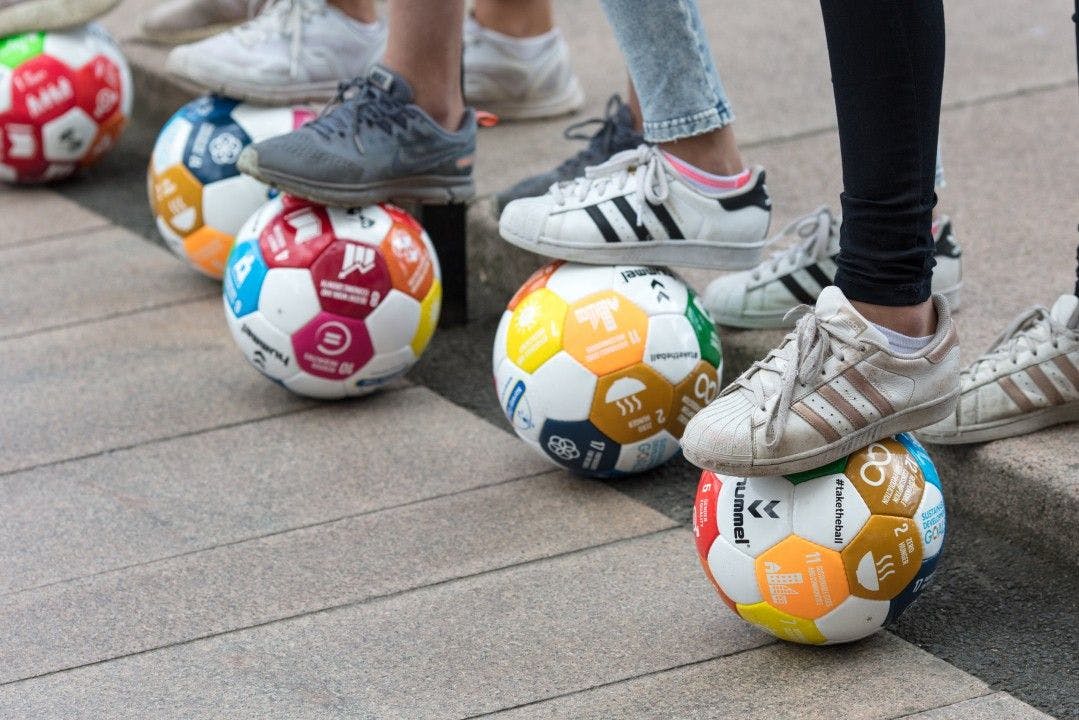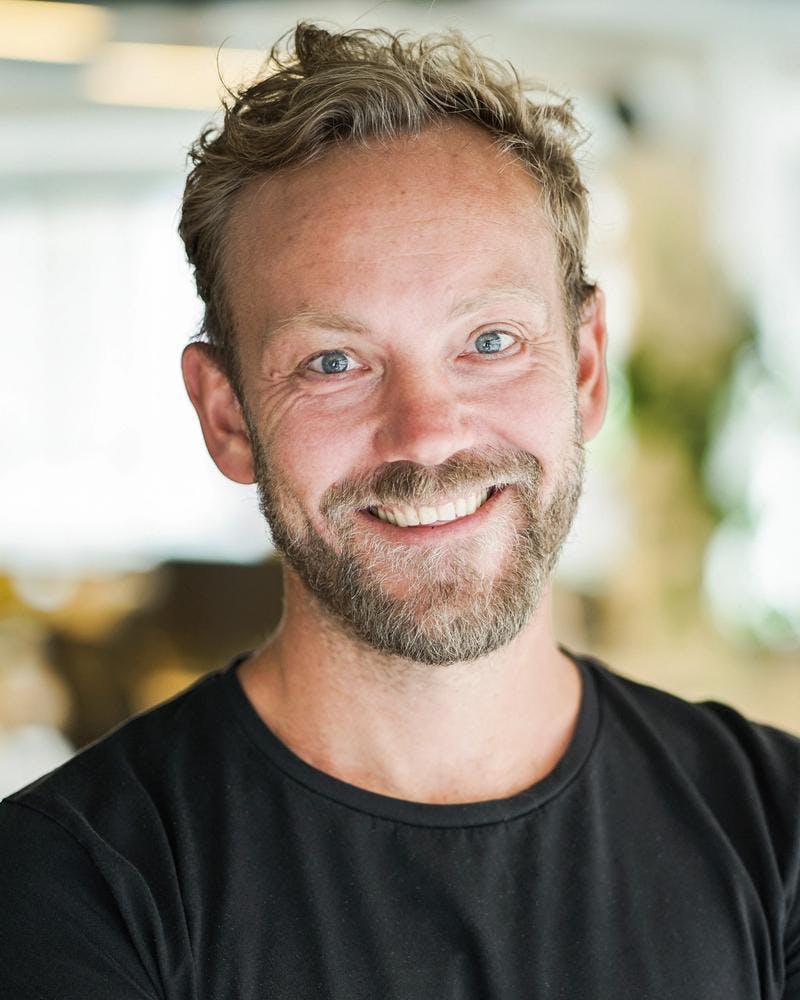Ensuring Voluntary Change
Since launching in july 2022, we have seen over 120 members sign up to Football for the Goals. We sat down with Robert Skinner, United Nations' Chief of Partnerships and Global Engagement, to discuss the importance of collaboration and Norwegian leadership.

About Football for the Goals
Football for the Goals (FFTG) is United Nations' first sustainability project within Football, providing a platform for the global football community to engage with and advocate for the Sustainable Development Goals (SDGs). The process is lead by ÆRA.
Why do we need an initiative like Football for the Goals (FFTG)?
- The world is behind on achieving by 2030, so we needed a vehicle to reach as many people as we possibly can to make that change. And that vehicle turned out to be football. It is a massive sport. The viewing numbers are incredible. Whether you love football or not, its reach is powerful.
And why an initiative, instead of, say, legal agreements?
- We decided that it should be created as an initiative because it enables voluntary collaboration. Meaning any entity connected to football can join, including the grassroot. We want to let inclusivity drive change.
How do you ensure such voluntary change?
- FFTG lets football organizations sign up to be part of this initiative, and thereby also commit to:
1) talking about the SDGs and the importance of sustainable change
2) committing themselves to make change within
We do not want this to be just a messaging campaign or a greenwashing campaign. It has to be about real change. Commitment is key. From every party involved.
This initiative also relies on a lot of communication, and hands on engagement. Members have questions, as they should, and we need to be there to answer them. Norway with their pilot certainly has a lead role in this.
We are planning convenings for our members. The first one in February, where sustainability experts from the UN, experts from the Norwegian pilot and the members themselves can exchange knowledge and get guidance based on what path they are currently on. Some are just starting they journey towards sustainability, while members in Norway are quite advanced thanks to the pilot group.
And then there is trust. We are building trust between the UN and the initiative’s members, but also between the members themselves. The best way to do so is by consistent interaction and giving the members a trusted platform to learn from each other.
Will this reach beyond the football community?
- Yes. We know not everyone follows football closely. But the initiative moves out because the football community is passionate. If we can get professional football players talking about the SDGs, it will draw in their fans, and they will hopefully in turn draw in they friends, family, and colleagues sharing the work. Fans are our most important audience for individual change on top of organizational change.
A large task at hand. Do you find it bold of Norway to partake with a pilot?
- Norway boldly stepped up.
Through the associations, the top league, peers, and through ÆRA. And, we saw a great opportunity in a country where there is a fundamental awareness of the SDGs. This enables a more advanced thinking of how the SDGs can be demonstrated as real business opportunities and practices through football as an example. If it can be done in football, it can be done in any kind of organization.
The UN loved the approach you suggested for doing so; Where all sectors come together to work on sustainable change and drive it forward. We see the Norwegian model as one potentially all countries can follow.
Is that a key success factor, cross-sectorial collaboration?
- Absolutely. We are even bringing competitors together. We all need to work together just in this initiative, but in saving the planet.
Then there is language. We have SDGs. Then we have ESG – a key tool in the Football for the Goals’ process. There are many indicators of sustainable work. Sometimes the language of the UN does not match up with the language of business, and certainly not the language of football.
So, a big part of raising awareness and engaging people in the SDGs is to create an understanding of what the goals are in normal language. This initiative really allows us to ask ourselves: “What does this really mean?” through the entire football ecosystem. Eventually leading us to understand how we reach businesses, but also people.
There seems to be some surprise over the fact that the UN works with smaller, commercial actors, like ÆRA. Why so?
- We do work with different commercial entities, but yes, I believe there has been a bit of a shift within the UN over the past few years.
The SDGs were never meant to only be about governments achieving the goals within 2030. The goals were created with an all of society approach and lots of input by, among other key stakeholders, the private sector. So we continue talking to them because we need all walks of life to participate. Small commercial actors like ÆRA, academics, NGOs, communities like football, civilians – society.
The world is behind on reaching our sustainability goals. So, while we cannot have formal partnerships with everyone, we do find other ways to collaborate to make the SDGs known, seen, and understood. FFTG is one such example. We go, and we work, where people are. And people are, for example, at football – with football.
Want to learn more about this project?
Contact



